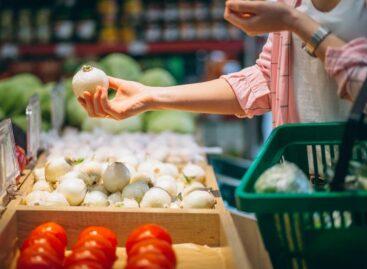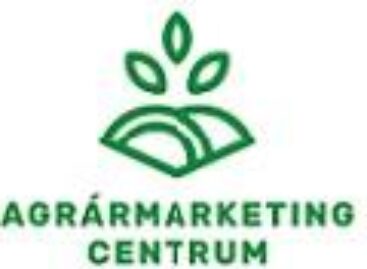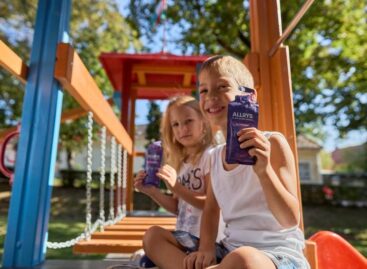Magazine: Report from the boardroom (Part 3) – An interview with Michael Holm, Diageo’s managing director for Eastern European markets
In our new series Judit Szalóky Tóth, a Boyden Executive Search partner makes interviews with executives.
This time she asks questions from Michael Holm, who has been the managing director of Diageo in Eastern Europe (a region that includes Europe Partner Markets, the Near East and North Africa, plus Russia) since July 2020. He has been a member of the Diageo team since 2011, before that he used to work for Procter&Gamble, Gillette and Philip Morris International.
Our world has changed fundamentally. What do you think about the trends that currently have the biggest impact on businesses in the FMCG sector?
Diageo’s view is that the COVID-induced crisis didn’t create completely new trends; it has just strengthened the already existing ones. A good example of this e-commerce, which has been given a major boost. However, the double-digit sales growth in this channel doesn’t mean that brick-and-mortar stores will close, e-commerce’s share in FMCG sales will return to the normal 3-5 percent after the lockdown measures are lifted.

Guest author:
Judit Szalóky Tóth
partner
Boyden Executive Search
Now is the time for a restart and a renewal. What are the lessons learned and the opportunities to exploit that FMCG companies can rely on if they wish to make changes in their operations?
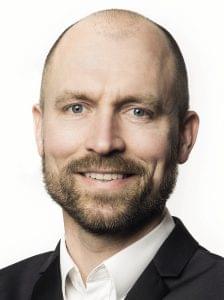
Michael Holm
managing director
Eastern Europe
Diageo
It is very likely that shopper demand for comfort will become even stronger, and safety and hygiene are going to remain important in influencing the future of the hospitality and tourism sectors. Premium products and services will continue their conquest, as forecasts say consumers will give preference to these when they can finally meet again. Those FMCG companies that can satisfy these needs will grow above the average.
How do you think sales will develop in the HoReCa channel and in retail in the short and the long run?
In retail shoppers prefer small stores instead of hypermarkets. On the other hand, shoppers are more and more omnichannel now: many of them buy both online and in physical stores. They plan their purchases differently than before, using the internet to gather information and find inspiration, so digital devices will play a bigger role in offline retail too. As for the hospitality sector, people to tend to visit bars, cafés and restaurants located close to where they live. A slower pace of having fun has become the new normal and it is going to stay with us. Premium products will gain ground, as guests will consume less, but better quality.
Sustainability efforts have become important in the strategies of many companies. One of Diageo’s strategic goals is to become ‘one of the best’. What steps are you taking to achieve this?
Diageo is present in categories where it takes years to develop a new product. We are dealing with premium products and buying these is always an emotion-driven thing on the consumer side. It is very difficult for an unknown brand to sell premium alcoholic drinks. This is why the value of our brands is our biggest asset, so we invest a lot in brand building.
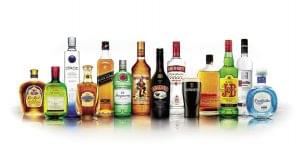
What does Diageo’s recently launched ‘Society 2030: Spirit of Progress’ programme contain?
There are three key areas – celebrating moderation in alcohol consumption, championing inclusion and diversity, and helping to create a more sustainable world – where our main objective is to become role models for others. Our DRINKiQ programme promotes positive and responsible drinking, and it seeks to reach one billion people with its messages in the next 10 years. In Hungary we are going to carry on with our Smashed programme, educating people on the risks of alcohol-related harm. We also cooperate with the National Accident Prevention Committee (OBB) to prevent drunk driving. //
Related news
EU Commissioner: New regulation strengthens protection for farmers and smaller suppliers in the food chain
🎧 Hallgasd a cikket: Lejátszás Szünet Folytatás Leállítás Nyelv: Auto…
Read more >AMC: Hungarian organic products can be presented in Germany
🎧 Hallgasd a cikket: Lejátszás Szünet Folytatás Leállítás Nyelv: Auto…
Read more >Related news
NKFH: inspections focus on discount prices and customer deception
🎧 Hallgasd a cikket: Lejátszás Szünet Folytatás Leállítás Nyelv: Auto…
Read more >


